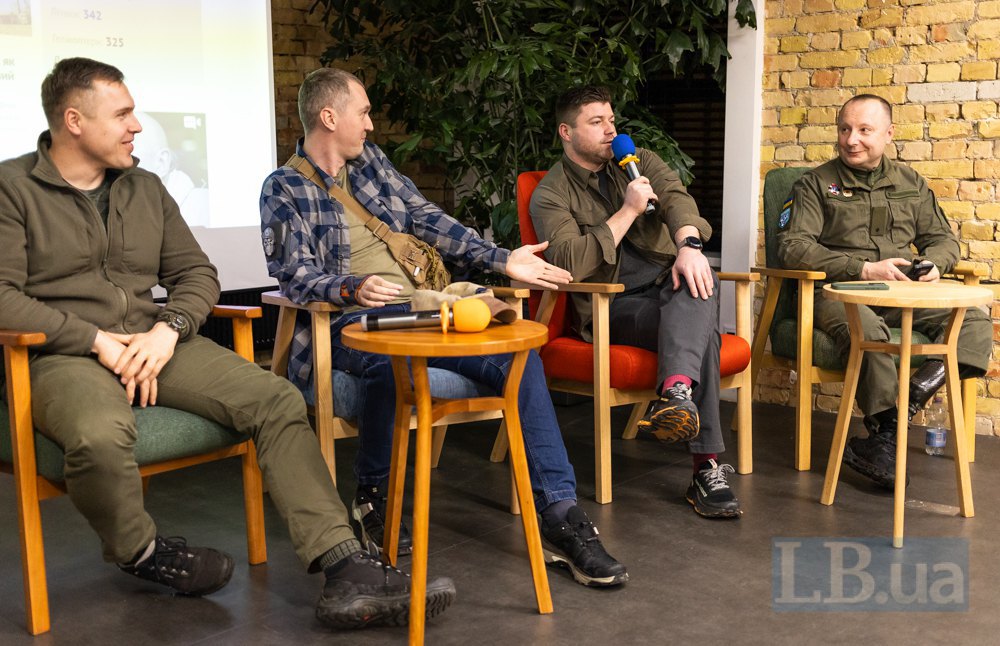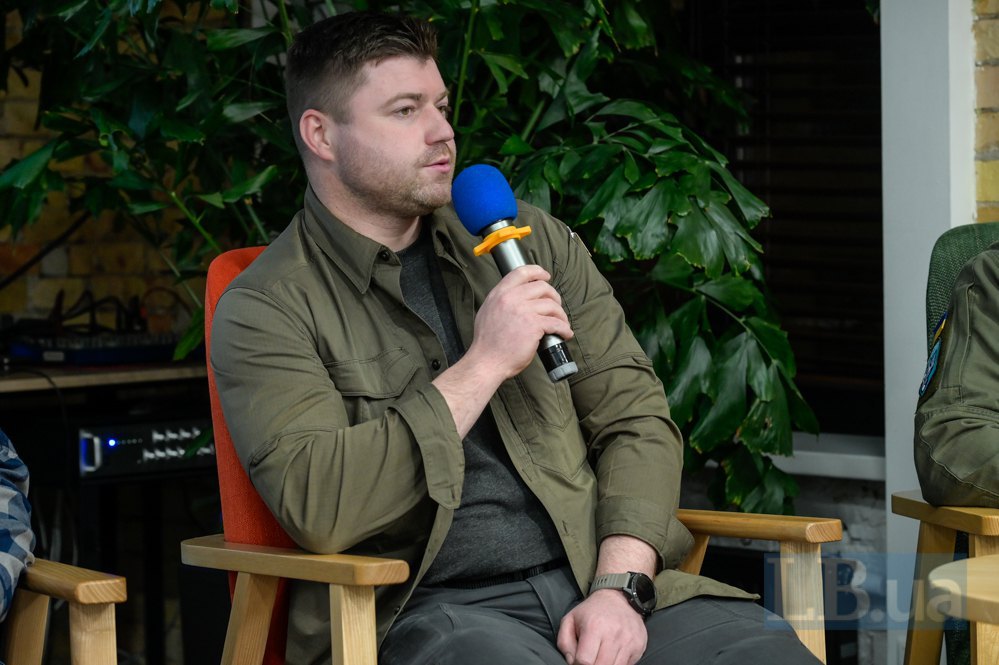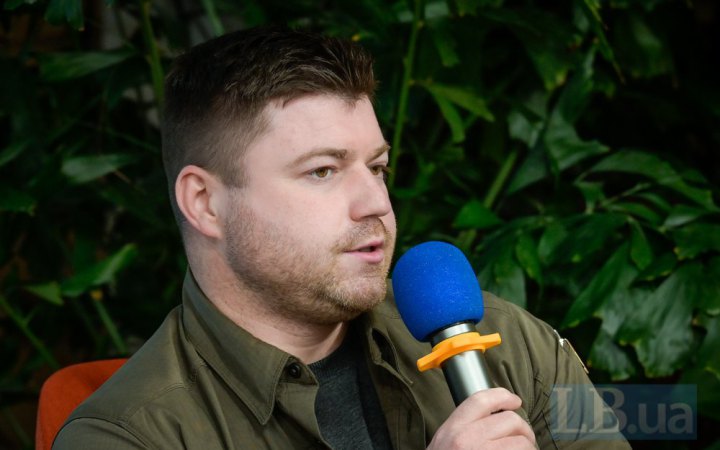What the Ministry for Veterans Affairs has done since 2022
According to Oleksandr Porkhun, the ministry has significantly increased funding for housing subventions over the past two years.
Eligible for such subventions are:
· persons with war-related disabilities and family members of Ukrainian defenders killed in the ATO/JFO;
· combatants, internally displaced persons from the ATO/JFO area;
· persons with war-related disabilities of the first and second groups and family members of killed and deceased combatants on the territory of other states;
· participants in the Revolution of Dignity.
"In 2023, UAH 5.7 billion was allocated to cover the housing needs, which made it possible to provide 2,627 apartments. For this year, we have also reserved 5.7 billion, which will provide about 2,000-2,100 apartments for these categories," Porkhun said. He added that the state has fully paid subventions to the participants in the Revolution of Dignity, and this category has now been closed.
In addition, he notes, the Ministry for Veterans Affairs has developed a number of bills that have already become laws. For example, on the regulation of the status of family members of fallen defenders of Ukraine. Until 2022, they were listed in the law as persons equated to combatants, the ministry's representative said.
Another new law, he says, introduces the concept of the highest state awards - Hero of Ukraine with the Golden Star Order, full cavalier of the Bohdan Khmelnytskyy Order, full cavalier of the Order for Courage and full cavalier of the Princess Olga Order.
"Until 2022, these state awards were not described by law. We had 'heroes of glory', 'heroes of labour', etc. And on top of that, there is a monthly financial assistance: for Heroes of Ukraine of all categories only with the award of the Golden Star since 2014 - three minimum wages; for holders of the Order of Bohdan Khmelnytskyy - two minimum wages. And for the orders 'For Courage' and 'Princess Olga' - one minimum wage," says Porkhun.
In addition, together with the Ministry of Youth and Sports and with the participation of MPs, a law on national and civic identity was developed and adopted. This makes it possible to develop a strategy for national-patriotic, military-patriotic development, civic and memorial work in the country, he said.
In addition, at the end of last year, the process of choosing a site for the National Military Memorial Cemetery was completed, the Ministry for Veterans Affairs drafted a bill, and parliament passed it in December.
"It's a big story. Many proposals and locations for the construction of the National War Memorial Cemetery changed, but a new law was passed on the basis of this law, which made it possible to determine the final location. The cemetery will be in Hatne, with 268 hectares being allocated there. I hope the government will approve the resolution, which will allow the National Military Memorial Cemetery to take over the land plot and start work as soon as possible - to immediately start construction of the first and second stages," said Porkhun.
He also said that the Ministry for Veterans Affairs has developed a strategy for transition from military career to civilian life.
"It was written about a year ago. But when I started acting as Minister for Veterans Affairs, I withdrew it. Now, together with experts from the public sector and international experts, we are going to proofread it and submit it to the Cabinet of Ministers for approval in a month or two," the head of the ministry said.
In addition, he added, the ministry has worked out the budget for next year, which has grown from UAH 998 million to more than UAH 13 billion in 2024 and needs to be increased.
Porkhun also mentioned the development of an electronic register of war veterans as one of the positive results of his work.
"It was created with donor funds. We are currently working closely with the Ministry of Defence and the Ministry of Social Policy to integrate our registers and exchange data automatically, not via a USB stick. Because due to the full-scale invasion, the data comes in very raw, we have to verify the register, there are duplications, incorrect data. This will allow us to completely clean it up and understand the real number of combatants we have now. The Ministry of Defence is also working on the matter. The Ministry of Social Policy is a little more complicated, because our registers are created on different platforms. We need to develop a system that will combine and synchronise them," said the acting minister.

Despite these results, the acting head of the Ministry for Veterans Affairs, who is himself an ATO/JFO veteran, admits to a failure in working with the veteran community. According to him, almost 70 per cent of veterans are unaware of the benefits and services guaranteed to them by the current law, and therefore cannot use them.
"I know about the poor communication, the terrible Facebook, Instagram, etc. It takes time. Give me time," Porkhun said, noting that this situation will be remedied by information campaigns. And he announced the main thing - radical changes in the ministry's approach to policy-making on veterans.
Changes in veteran policy. The vision of the Ministry for Veterans Affairs
All the participants of the New Country discussion panel unanimously noted that, when implemented, the veterans' policy will determine the future of the country, taking into account the challenges the state is facing and the actual number of veterans. And here, Porkhun suggests abandoning the Soviet approach of "benefits" and "services" and replacing them with socialisation and development tools.
"My position is that I am against privileges. Currently, the ministry wants to introduce a completely different concept. We want to provide veterans with development tools. They can include many things, starting with education or retraining. Because talking to veterans, to their friends... they change during the war. One may join the army being a musician, but when he returns, he doesn't want to be a musician anymore. He wants to be a programmer," said Porkhun.
But this must be preceded by physical and psychological rehabilitation, the official said.
"You have to start with your health. This is the most important thing. You can give an apartment, tuition, a lot of goodies. If they are not rehabilitated psychologically, physically, mentally, then you can give them outer space, but nothing will work," he is convinced.
Another important point is that social injustice needs to be addressed. According to Porkhun, even with the current list of benefits, a veteran in Kyiv can use the metro, trolleybus, tram, and minibus, while a veteran in a village has no access to any type of transport.
It is also necessary to change the mentality of both society and the veterans themselves, he said.
"When in 2020 I raised the issue of cancelling payments around 5 May (war veterans receive a one-time financial assistance of 1,300 hryvnyas every year around 5 May - ed: note), I was told: 'What are you talking about! How can you do that! We were at war!' Did you fight for 1,300 hryvnyas? Or when a veteran comes and says: 'The state must…' This is also wrong. We understand this. We need to change our approaches. We need to change our mentality. The mentality of veterans," Porkhun said.
"When I went to war, I did not think about benefits and services. I was thinking about the future of the state. About my future children. About how our state will exist, how to preserve our state. And when I came back, I did not go and ask for an apartment, land or benefits. I did not need them. I integrated into society and got a job," he shared his personal story. "But I understand that there are difficult cases. We must start by informing people about what the state can give them. We need to completely change the 1993 law of Ukraine, which is an echo of the Soviet Union. Over 30 years, 97 amendments have been made to it, everything is declared, but it does not work."

In his opinion, one-off payments do not have a useful effect, and often they do not even reach families. Instead, a thorough approach to supporting veterans is required.
"Something can be monetised. But we need to provide ongoing psychological support and rehabilitation. We need to provide opportunities for higher education and retraining. And not just to get an education, but with further employment. We need to support veteran entrepreneurship, because these are jobs. This is the principle of 'equal to equal'. A veteran will help a veteran. Even if we compare America, there are 2.5 million veteran-owned businesses there. And they generate a trillion dollars," Porkhun said.
"I set a task for the ministry and myself, first of all, that the newest veteran policy should move away from benefits and services... And I support my colleagues (the panellists - Ed.): we all, albeit with different opinions, agree that a veteran should not be a lifelong identity. He may be a veteran in his heart, but in society he or she must first and foremost be a socialised person. And we, as a state, must help them in this," he concluded.









